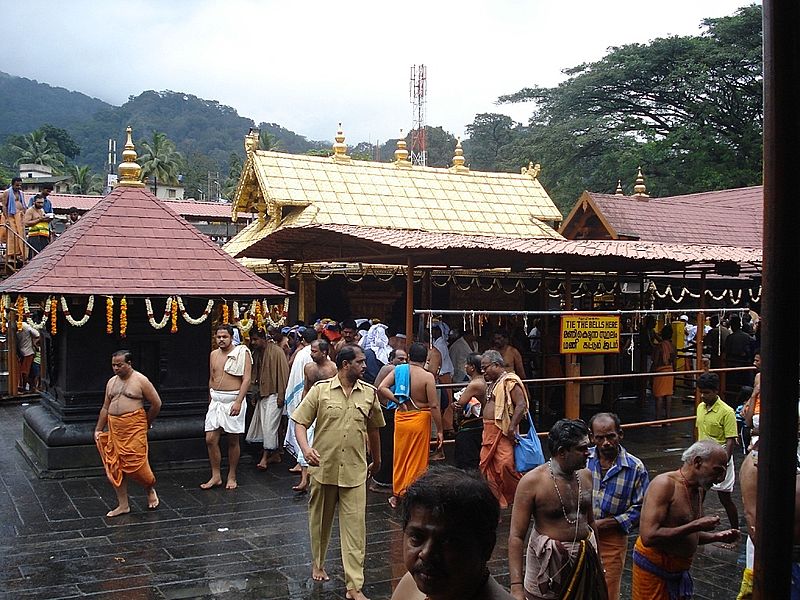In the ongoing hearing of petitions challenging the denial of right to worship to women devotees at the Sabarimala temple, Kerala, Justice Kurian Joseph, one of the three judges on the bench, on 18 April, asked amicus curiae Raju Ramachandran, a pointed question: Can you force deity who does not want to see women (of menstruating age), to 'see' women?
The question took Ramachandran by surprise, as he was submitting to the bench, that the belief that the deity at Sabarimala was celibate, and therefore should not see women, may be an institutional practice, but it is subject to morality of the Constitution, ingrained in Article 25.
’A practice which is detrimental to dignity cannot be countenanced’, Ramachandran explained, defending those who challenge the discriminatory rule barring women between 10 and 50 years of age, from entering and offering worship at Sabarimala.
The bar on the right to worship by women between 10 and 50 years of age is justified by temple authorities on the ground that menstruating women of that age group could distract the deity who is celibate.
When Ramachandran replied to Joseph that he would not question beliefs, Justice Joseph continued to ask how one could compel the deity to be pleased.
But Justice Joseph’s question remained unanswered by Ramachandran, even as he countered it by saying that the argument that only women of a particular age group can worship at a public temple is facile.
Ramachandran argued that in a public temple, Article 25 right must be available to every person irrespective of sex, or biological phenomenon.
Joseph’s questions seemed to be at variance from the views of Justice Dipak Misra, who presides over the bench.
Misra suggested to the counsel that the bench would not get into the debate on the nature of the deity or the value of a custom, but confine itself strictly with the Constitutional parameters.
Well-known advocate, Lily Thomas, took the bench by surprise by appearing on behalf of an intervener - a group of women - who apparently claim that they do not want to exercise their right to worship at Sabarimala.
The arguments will continue on 22 April.

threads most popular
thread most upvoted
comment newest
first oldest
first
The question of the judge is actually a really good one. Don't unnecessarily bring down the level of discussion to a men-vs-women, rules are of men, level.
The judge's question is perfectly valid, if the deity is a juristic person, then the guardian's can also invoke the Constitutional Freedom argument in its favour, arguing thereby that even if women are permitted into a temple, they should not be permitted in the inner sanctum since it violates the deity's right to privacy.
It is a very nuanced question and actual requires far more research and knowledge (than what I possess or presently have the time to do). I don't see why you need to dismiss the question.
Yesterday, Chetan Bhagat called a fellow lawyer, Dushyant Arora, a "clear india hater". This morning however, Chetan ji apologized to Dushyant citing a "link mix up". What happened in between? Why did Chetan keep silent for hours and hours before a morning apology! Read what happened in between, briefly, here:
Knickeratti - bit.ly/23HTjpN
Kian sorryyyy to post this comment here but did not know how else to communicate this to you.
Chandigarh babus (not even the legislators) are planning to ban short skirts in ChaNDIGARH ON GROUNDS OF ANTI NATIONALISM/ sedition. Please highlight it and make people aware. Also, take eminent counsels view on it. Many thanksss
threads most popular
thread most upvoted
comment newest
first oldest
first